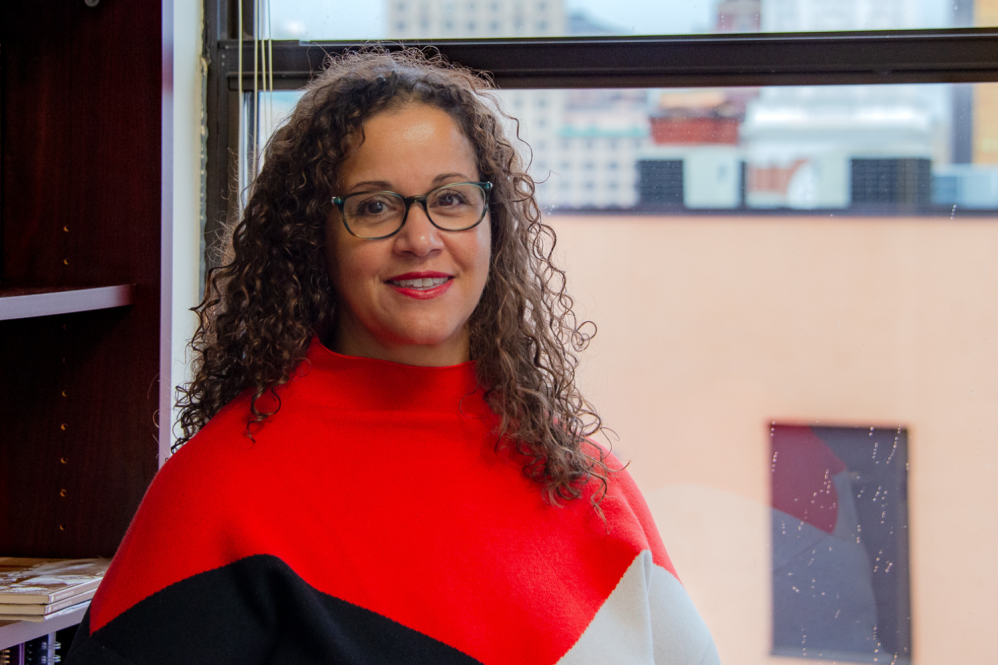UConn Today sat down with the director of the Health Disparities Institute at UConn Health, professor in the School of Medicine, and faculty affiliate in the School of Social Work, Dr. Linda Sprague Martinez, as she settles into her new role at UConn to hear more from her personally including her latest exciting plans for growing HDI programming.
Q. How is your new role at UConn?
A. I have enjoyed transitioning into the new role at HDI. I have particularly appreciated my new HDI colleagues, who have been incredibly welcoming. HDI has done wonderful work in the community over the years to advance health equity. For me one of the benefits of working at UConn, a land grant institution, is its public mission. In addition, the institution values community engagement, and our role in advancing community change. As a public scholar focused on community partnerships, knowing my institution supports and celebrates community engagement is a blessing. In terms of the day to day, I am enjoying getting to know more about Connecticut communities and local organizations. There are many local and state efforts focused on advancing health equity and I have appreciated how welcoming people are here as well as their openness to partnering with HDI. We recognize people in communities know what they need to be healthy, and that we, researchers, health care providers, and policy makers need to listen better and learn from them. We, specifically, have a lot to learn from people in communities when it comes to developing interventions to address pressing public health issues like health inequity.
Q. What is your biggest hope for HDI as director?
A. My greatest hope for HDI is that we can become the go to place for community driven research and that we can, together with community residents, influence system changes that contribute to the elimination of racial inequity in health and grow economic opportunity.
Q. What health disparities issues are most important to you right now?
A. All inequity is important to me, and I am specifically interested in efforts to address the impacts of racism on economic opportunity and health. However, when it comes prioritizing areas of focus our goal is to elevate health and social issues that are most important to people in communities who are impacted by the harmful effects of racism.
Q. What big project is next on the horizon for HDI?
A. HDI is working with the state agency Commission of Racial Equity for Public Health. We are currently launching a community-based research project to inform the commissions strategic planning process. We are contracting and training a team of residents from across the state as community research advisors to work with us on the design and implementation of an assessment. No research experience is required, only an interest in making change in the community to advance health equity. It has been exciting to see the level of interest and engagement from Connecticut residents. We screened 108 applications from Connecticut residents in areas highly impacted by racial inequity across the state. The positive response from community members has been just phenomenal! People in Connecticut clearly care about community health and health equity, and they are willing to get involved. We are excited to launch this research and action training program and to find more ways to support the involvement of residents in health equity research and action.
Q. When it comes to health disparities, how is Connecticut doing?
A. Racial inequity in Connecticut is pervasive across health, wealth, employment, and educational outcomes. So, in that sense Connecticut is no different than other states. However, Connecticut is rich in resources. The key is figuring out how to make sure all Connecticut residents have opportunities to benefit from the State’s resources. This will require rethinking how systems operate and unintended consequences that create significant barriers to opportunity. Health is much more than health care. We know that health is driven by social and economic factors, thus efforts to advance economic mobility and financial security are critical for advancing health.
Q. Why is youth engagement in our communities critical?
A. We know that patterns established in childhood and early adolescence impact health across the lifespan. Young people have a lot to offer when it comes to thinking about community health and well-being, yet we rarely engage them in community health efforts including for research and policy. This is a missed opportunity. There are many benefits to partnering with young people. When we partner with them, we can develop solutions that are meaningful for young people. There are also benefits for young people including increased college and career readiness, civic-mindedness, and interest in health careers to name a few. These can translate into benefits for the broader community over time. I’d be remiss if I didn’t mention the benefits to us as researchers, when we partner with young people, listening, learning, and engaging in power-sharing can enhance our perspective and the way we see the world too.
Sprague Martinez grew up in Southern New Hampshire receiving her B.A from the University of New Hampshire, M.A in Clinical Mental Health Counseling from Rivier College, M.A and Ph.D. in Social Policy from the Heller School for Social Policy and Management at Brandeis University.



